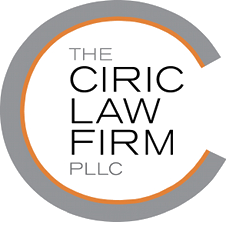As the US battles the COVID-19 pandemic, there are numerous stories from both the famous to everyday people, who had family members placed into medically-induced comas and put on ventilators to survive. However, once someone is unable to communicate with their doctors about treatments and make decisions about their health care, who decides and consents to treatment? As a patient, how do you have a say in your medical care when you do not have the ability to express your intent?
In New York, there are two options for determining who can make health care choices on your behalf: a designated Health Care Proxy or a Health Care Surrogate.
NEW YORK HEALTH CARE PROXY
You can designate one or more persons to speak on your behalf using a New York Health Care Proxy Form. The basic form, outlined by New York Public Health Law, requires the Proxy or Proxies being appointed be eighteen years of age or older. The designated Proxy and alternate Proxy cannot be a witness on the form. There are additional restrictions and exemptions on who may serve as a Proxy if the nominated Proxy is also a medical professional. Beginning June 17, 2020, medical professional will also include physician assistants, as part of New York’s update to its classifications of health care professionals.
Individuals currently under a guardianship order cannot execute a Health Care Proxy designation, and there are additional rules for those people residing in a mental hygiene facility.
The Health Care Proxy form does not need to be notarized, but two witnesses must sign, along with the person making the designation. The New York Department of Health has a basic form and answers to frequently asked questions available here.
Once designated, your Health Care Proxy is only called upon if you become unable to consent or refuse treatment as offered by the medical professionals you are seeing at that moment. This is why it is important to have your designated Proxy’s updated contact information, including a phone number they can always answer, included on the form. When instant health care choices need to be made, medical professionals will need to reach your Proxy in a timely fashion.
If you are an organ donor, or feel strongly one way or another about organ and tissue donation, it is important to add your wishes on this topic to your Health Care Proxy form and discuss it with your Proxy(ies). Because the decision to donate will have to be made quickly, make your feelings and intentions clear in your legal form and to your loved ones.
It is important to provide your medical caregivers with a copy of this form, if they do not already have it in your medical records. Just as important is bringing a copy with you when you go to a hospital. You can sign multiple original copies of this document. It is a good idea to have at least three originals: one for your Proxy, one for your alternate Proxy, and one for you.
NEW YORK HEALTH CARE SURROGATE
We have all watched the dramatic scene in movies and TV shows where a patient slips into a coma. Then the doctor goes to the family in the waiting room and asks them what health care decisions they want to make for their loved one. This type of decision-making, often called substitutive judgment, was not available in New York until 2010.
With the advent of the Family Health Care Decision Act, New York finally implemented a list of people medical professionals could seek guidance from related to life-sustaining treatment, in the event a patient could no longer speak for themselves. Without a Health Care Proxy, families had to hope the patient got better, or had to start a guardianship proceeding to be appointed as the incapacitated person’s Health Care Proxy.
Under New York Public Health Law, the order of priority for a Health Care Surrogate of an adult patient, after a reasonable effort has been made to determine if the patient does not have a Health Care Proxy designation, is as follows:
- A court-appointed Guardian with the power to make health care decisions
- A spouse or domestic partner (as long as they are not legally separated)
- Children eighteen years of age or older
- Parent
- Siblings eighteen years of age or older
- A close friend.
Based on the uncertainties surrounding the circumstances associated with potential statutory decision-makers, it is best to make a Health Care Proxy designation using a form, and having a discussion with your designated Proxy(ies) and alternates about your medical choices. However, in an emergency such as this pandemic, it is important to know that New York law empowers your loved ones to speak on your behalf if you become unable to do so yourself.
For a more in-depth look at Health Care Proxies, Health Surrogates, Living Wills and Do Not Resuscitate orders, The New York Attorney General’s Office has a detailed PDF on advanced directives available here.
By: Martha L. Voelz, Esq.
Of Counsel, the Ciric Law Firm, PLLC
This material is for general information purposes only and should not be construed as legal advice or any other advice on any specific facts or circumstances. No one should act or refrain from acting based upon any information herein without seeking professional legal advice. The Ciric Law Firm, PLLC makes no warranties, representations, or claims of any kind concerning the content herein. The Ciric Law Firm, PLLC and the contributing presenters or authors expressly disclaim all liability to any person in respect of the consequences of anything done or not done in reliance upon the use of contents included herein.
This material is subject to the copyright laws of the United States and cannot be reproduced without the prior written permission of the Ciric Law Firm, PLLC. Copyright © 2020
